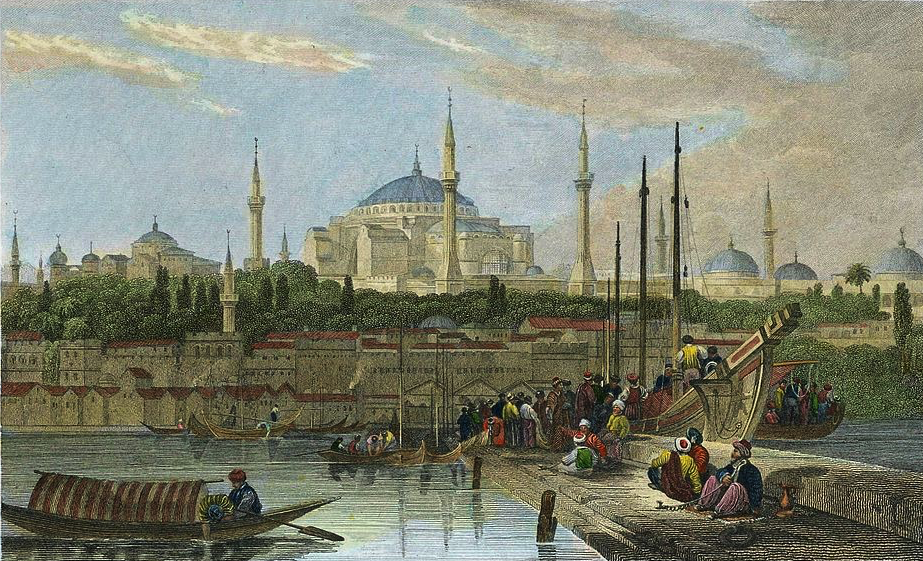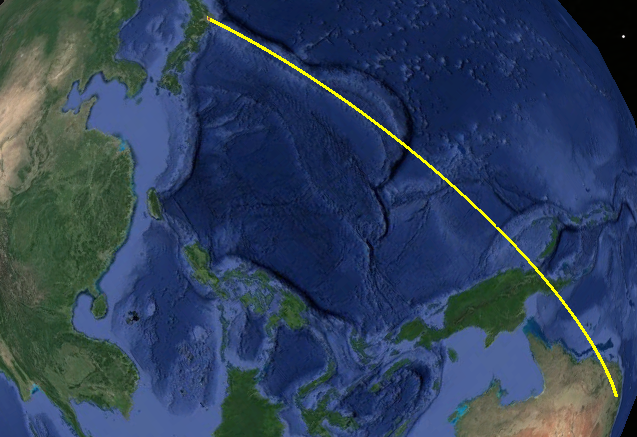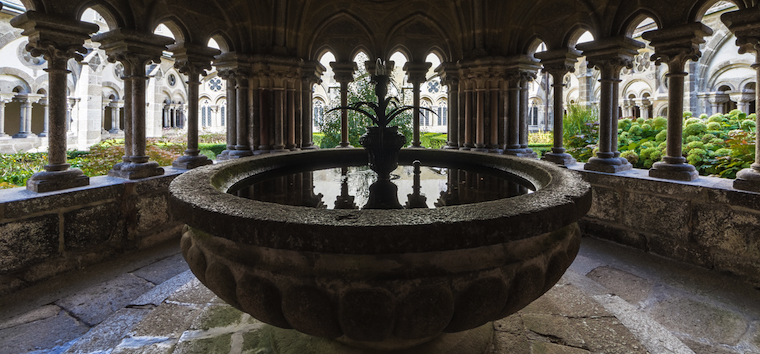
Constantinople
 Constantinople was the capital of the 500 year old Ottoman caliphate. And before the Ottomans captured the city and made it their own, it had stood for more than 1000 years as the capital of the Christian Roman Empire.
Constantinople was the capital of the 500 year old Ottoman caliphate. And before the Ottomans captured the city and made it their own, it had stood for more than 1000 years as the capital of the Christian Roman Empire.
In April 1863 Bahá’u’lláh was exiled again – “summoned” to that capital. As we have seen, the departure from Baghdad was a moment when the love the people felt for Bahá’u’lláh became evident and it was the moment when Bahá’u’lláh first announced his mission. Rather than a time of grief, it is a time that is celebrated as the greatest festival of the Baha’i calendar.
On arrival in Constantinople, it was expected by the ruling authorities, that Baha’u’llah would seek to ingratiate himself with them – that he would call on prominent intermediaries who could lobby the Sultan on his behalf. This Bahá’u’lláh declined to do.
…this Servant was summoned to Constantinople, whither We arrived accompanied by a poor band of exiles. At no time thereafter did We seek to meet with anyone, as We had no request to make and no aim in view but to demonstrate unto all that this Servant had no mischief in mind and had never associated with the sowers of sedition.[1]
He commented on the expectations:
Call Thou to remembrance Thine arrival in the City (Constantinople), how the Ministers of the Sulṭán thought Thee to be unacquainted with their laws and regulations, and believed Thee to be one of the ignorant. Say: Yes, by My Lord! I am ignorant of all things except what God hath, through His bountiful favor, been pleased to teach Me.[2]
Sometimes Ottoman ministers called on him. To one of these, Bahá’u’lláh recommended that he devote himself to fostering the adoption of a world language. The minister did nothing to further the advice.
Less than four months later, Bahá’u’lláh and his followers were to be exiled again. This time to the city of Adrianople. It was profoundly unjust treatment of those who had done nothing but obey the government’s orders. Bahá’u’lláh commented on the conditions he found in the city.
Our arrival in the City (Constantinople), and to it We bear witness. We found among its inhabitants some who were possessed of an affluent fortune and lived in the midst of excessive riches, while others were in dire want and abject poverty. This ill beseemeth thy sovereignty, and is unworthy of thy rank.[3]
(This article is the 124th in a series of what I hope will be 200 articles in 200 days for the 200th anniversary of the birth of Bahá’u’lláh. The anniversary is being celebrated around the world on 21 and 22 October 2017, The articles are simply my personal reflections on Bahá’u’lláh’s life and work. Any errors or inadequacies in these articles are solely my responsibility.)







